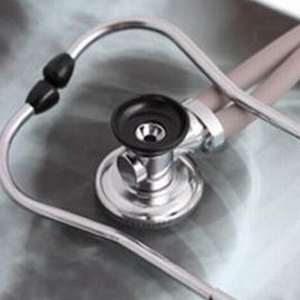
Medical schemes can be complicated things. If you have just joined one, or you've been a member for a long time, but there are things you're not sure of, take a look at these quick explanations. They might help you get across a medical scheme hurdle or two.
Remember that all schemes have their own rules and regulations, and if you need exact information about rules and benefits, it is essential that you contact your scheme directly. Ask for brochures, or find them online and take the time to go through them.
Medical schemes are not profit-making businesses – their income comes from the contributions of their members and their expenses are made up by two things: claims they pay out and administration costs. The actual company administering the scheme (often not the scheme itself) can legally make a profit. This is usually quite small in comparison to the costs of medical claims.
For a variety of reasons, most medical schemes have experienced a sharp increase in claims expenditures over the last couple of years. Schemes have tried in different ways to protect their reserves, in order to prevent insolvency. The Council for Medical Schemes, the regulatory body, requires schemes to have at least 25% of their contributions in reserve.
Many members feel somewhat resentful that they have to make co-payments after paying their monthly contributions.
Here are seven things you need to know about being a medical scheme member, and claiming for your medical treatment.
MSA. This stands for Medical Savings Account. What it comes down to is that a portion of your monthly contribution (no more than 25%) is made available to you for covering your day-to-day costs and acute medication costs (once-off prescriptions). This is used to pay GPs and specialists and certain other health practitioners, such as physiotherapists and psychotherapists. Schemes say this is to prevent over-use, but many members run out of benefits long before the year is over. This means that they have to cover day-to-day expenses out of their own pockets. MSAs are made available to members upfront at the beginning of the year. This sometimes causes a problem if someone resigns from the fund halfway through the year, but they have used up their MSA.
Self-payment gap. Many schemes have a SPG. This is a predetermined amount that a member has to settle for medical bills after the MSA has been exhausted. After that many schemes have a threshold benefit that kicks in. Here's an example: Member A pays in R2000 per month as a contribution. Her medical scheme gives her 20% of this amount as an MSA upfront in January. That means her MSA for the year will be R4800. If this has been used up, she is now in the SPG. In her case, she must pay the next R3000 out of her own pocket (this is called the self-payment gap), after which her threshold benefit will kick in. Not all schemes are structured like this, though.
Threshold benefit. This is a predetermined amount of money that will be paid out to a member for day-to-day expenses after they have spent all the money in their MSA, and they have gone though the self-payment gap. It differs from scheme to scheme and from option to option. (Do remember that just about no hospital plans have any of these benefits). It is important to continue submitting claims to your scheme even after your MSA is depleted, otherwise they will not know when you are eligible for threshold benefits.
100% of fund rate. Many people are under the very mistaken impression that if they have cover of 100% of the fund rate, all their hospital bills will be covered. Not so. Doctors in private hospitals are not bound to charge medical scheme rates. Do find out what the fund rate is for the option you have. If your scheme will pay R3000 for a certain procedure, and your doctor charges R5000, you will be liable for the difference. Some more expensive scheme options will pay up to 200% of fund rate. Remember that doctors seldom have set fees – many of them are open to negotiation. Don't be shy.
Cancer treatment. Many schemes set a monetary limit on cancer treatment (R350 000, or R400 000, or whatever per annum per family). If your cancer risk is high, it might be an idea to look for an option that has more extensive cancer cover, as costs for cancer treatment can escalate quickly. The last thing you need when dealing with cancer is to worry about finances. Consider taking out Dread Disease Cover in addition to your medical scheme cover.
Co-payments. These are medical costs which you have to pay in part, because the procedure or the medication is not covered fully by your scheme. If your scheme will only pay R1800 per annum for the services of an optician, and your new glasses cost R2400, you will have to pay in R600.
Medicines formulary. All schemes have to pay prescribed Minimum Benefits for the treatment of certain conditions. Some schemes have put together a medicines formulary, according to which they will pay a rand value for the treatment of certain chronic conditions. If a member is unwilling to use generic medication, he will sometimes have to foot the bill for the brand name medication. Your pharmacist will be able to give you information about generic medication.
Prescribed minimum benefits. Prescribed Minimum Benefits (PMB) are 270 medical conditions for which medical schemes are compelled by law to grant benefits (that is, cover the costs for their diagnosis, treatment and care), without imposing limits. These 270 medical conditions are set out in the Medical Schemes Act No. 131 of 1998, which is the piece of legislation regulating medical schemes.
(Susan Erasmus, Health24, updated February 2016)




 Publications
Publications
 Partners
Partners









